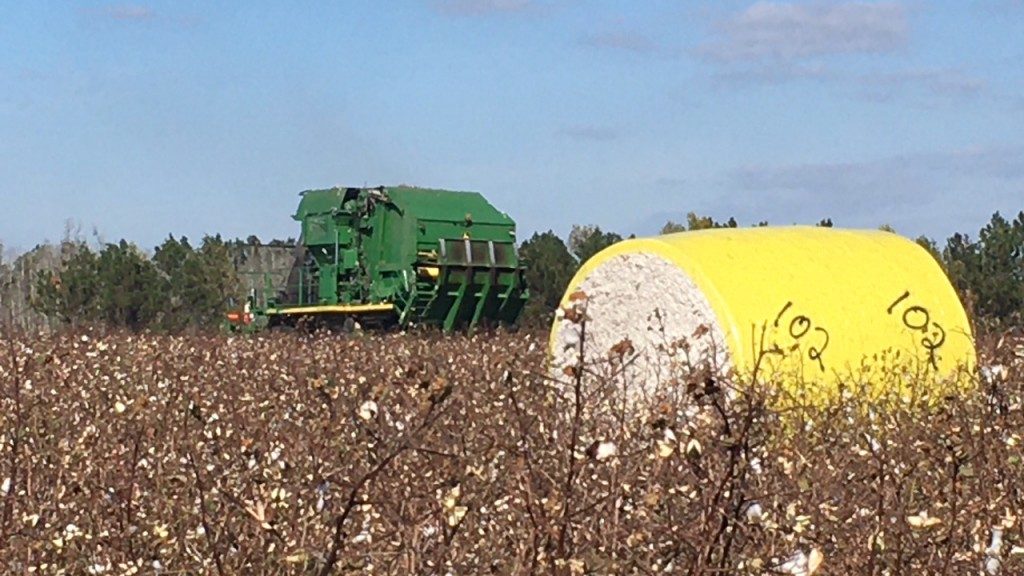Recent Posts
-
Cotton and soybean varieties with tolerance to auxin herbicides (2,4-D or dicamba) are nearing commercialization. Prior to making applications of dicamba to dicamba-tolerant cotton/soybean or 2,4-D to 2,4-D-tolerant cotton/soybeans in Georgia, growers will be required to attend the training “Using Pesticides Wisely”. The training will focus on helping applicators/growers make wise decisions when applying not…
-
Early February is a good time to start managing for ambrosia beetles. Normally, beetle damage is worse on young trees from newly planted to 6 yrs old. So growers who planted trees this year should check newly planted trees closely for signs of damage by ambrosia beetles (toothpick-like sawdust tubes sticking out of attack holes…
Posted in: Pecans -
Deidre Harmon, PhD Student, The University of Georgia. Lawton Stewart, Extension Beef Specialist, The University of Georgia. What is grass tetany and why is magnesium important? Grass tetany, also known as grass staggers, magnesium (Mg) tetany, hypomagnesemia, and wheat pasture poisoning, is a nutritional disorder caused by either 1) an inadequate amount of dietary Mg,…
Posted in: Uncategorized -
Below are a few words from Dr. Dennis Hancock, UGA Forage Specialist, about the fertilization strategies for winter annual forages. Yet again, the weather is making farming a high stakes game of chance. We had a very wet end to the summer growing season (in most areas) and this resulted in the leaching out of almost…
-
Date: February 2, 2016 Location: UGA Tifton Campus Conference Center HOW TO REGISTER: By Mail or Online. Mail your completed registration form with payment to Conference Office, UGA Tifton Campus Conference Center, 2360 Rainwater Road, Tifton, GA 31793-5766. Make checks payable to UGA TCCC/Corn. You may also register on-line at www.ugatiftonconference.org – click on registration…
Posted in: Corn -
COLQUITT COUNTY 2016 Vegetable Production Update Thursday, January 28, 2016 12:00pm – 2:00pm Stormy Sparks, Tim Coolong, and Bhabesh Dutta will be discussing vegetable production for 2016. A sponsored lunch will be provided, please call the Colquitt County Extension Office (229)-616-7455 to register for this meeting.
Posted in: Vegetables -
Attached is a pdf link to the 2015 Seedless Watermelon Variety Evaluation that Dr. Tim Coolong conducted in Tifton, Ga. This report contains a lot of useful information such as harvest times, total harvests, quality, weights, etc., that allows growers to compare numerous watermelon varieties. If you have any questions about the watermelon variety evaluation please contact the…
-
Every year the UGA Ag Economics Department updates row crop production budgets. Excel spreadsheet budgets for corn, peanut, grain sorghum, and soybean are available for use. Each commodity has an irrigated and dryland budget. If you are interested in the 2016 row crop budgets go to the link below. Also, the Jan 2016 version of…
-
The University of Georgia Extension Ag Economics Department has released an updated Crop Comparison Tool for 2016. This spreadsheet includes cotton, peanuts, corn, soybeans, wheat and grain sorghum in both irrigated and non-irrigated situations. Growers can also compare the cost difference between conventional and strip till production systems and also compare returns above variable costs…
-
Helminthosporium in Rye Before Christmas Holidays, we looked at a couple of winter rye fields that were having problems with the lower leaves dying on the plants, and the younger leaves exemplifying numerous necrotic spots. These symptoms were caused by a stressed derived pathogen called Helminthosporium. This disease is the causal agent of the leaf…
